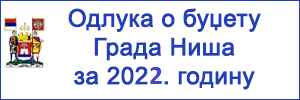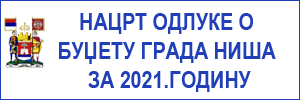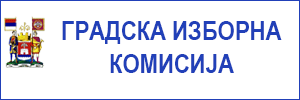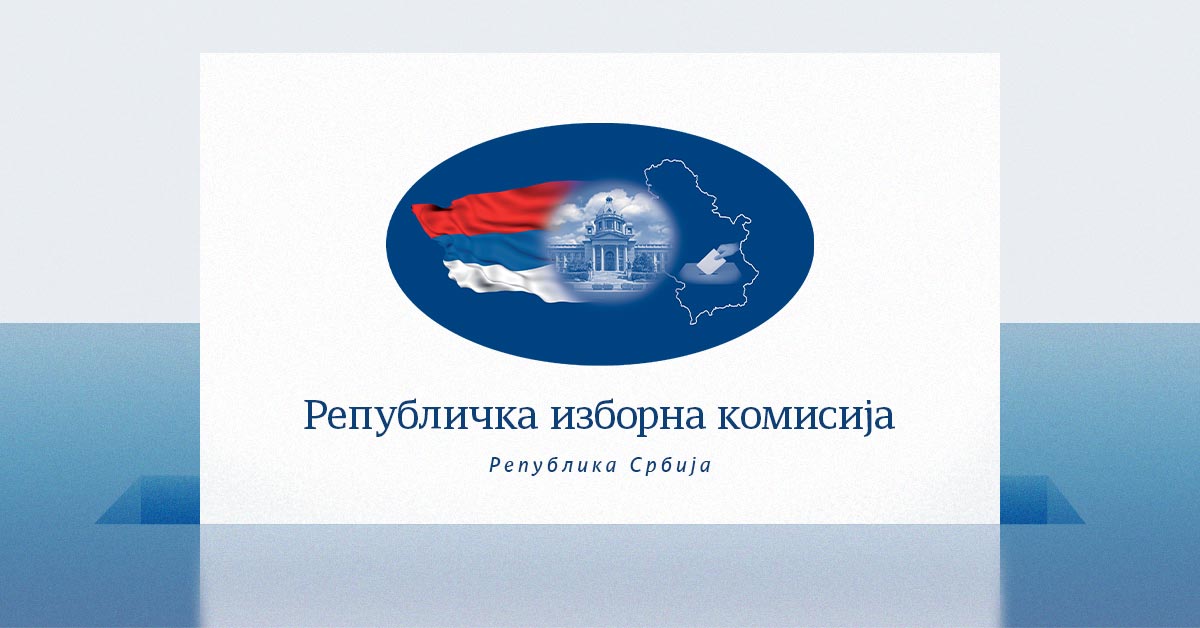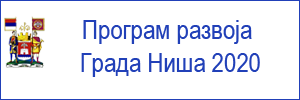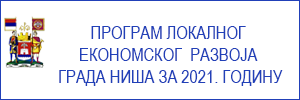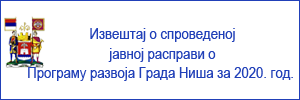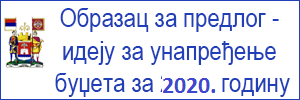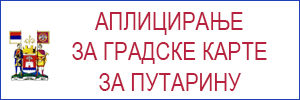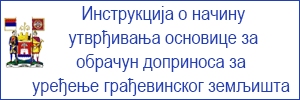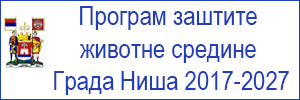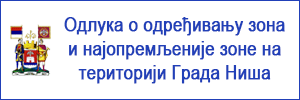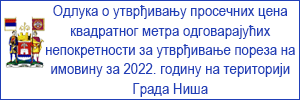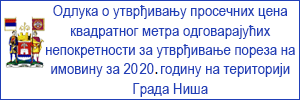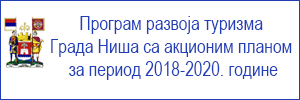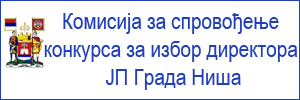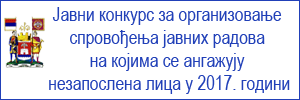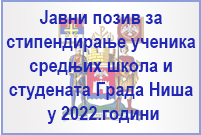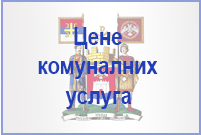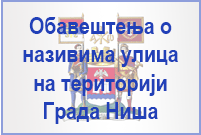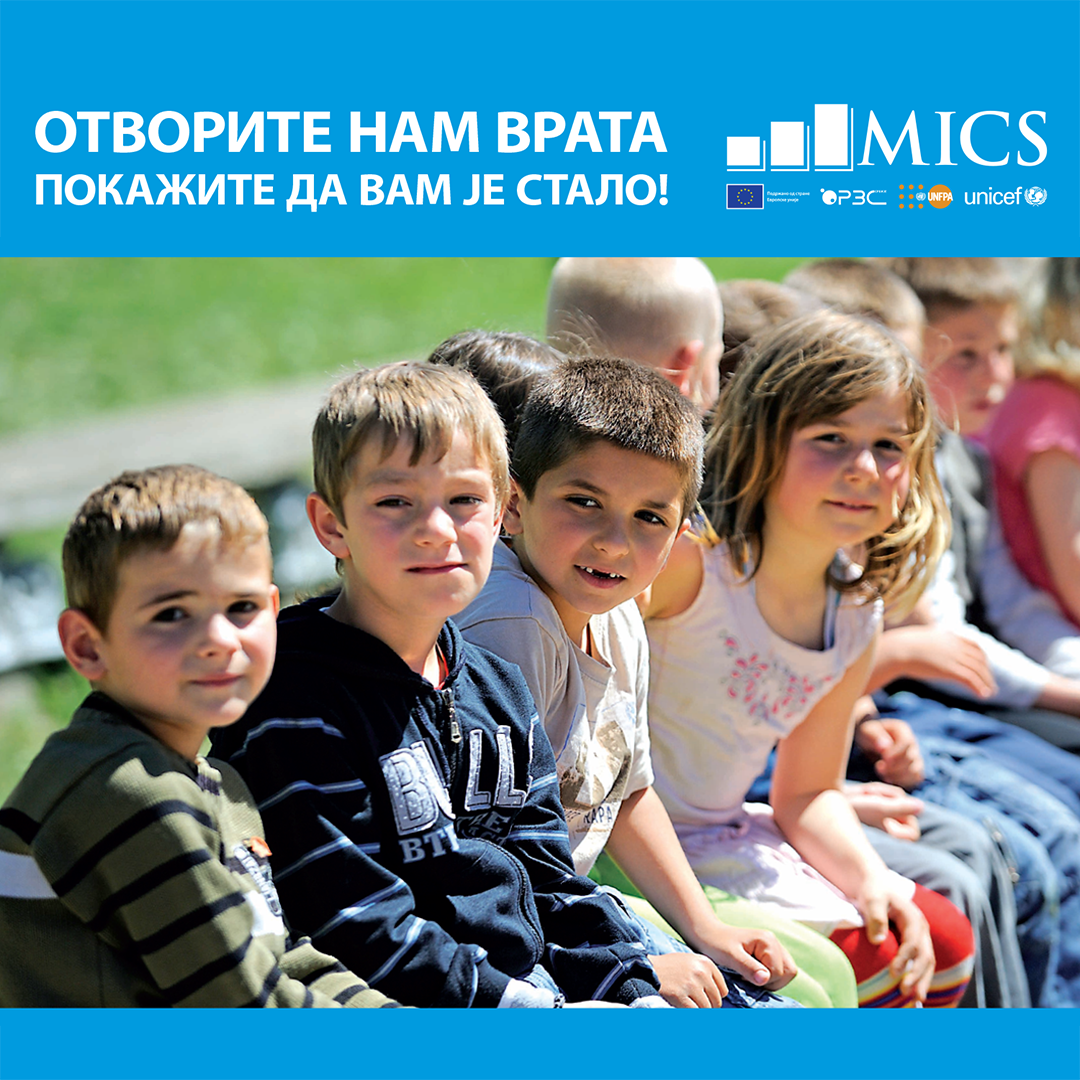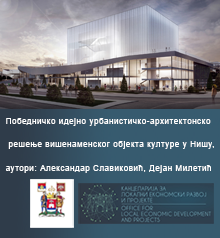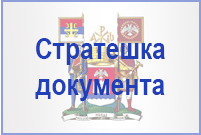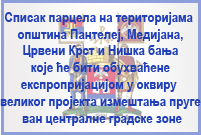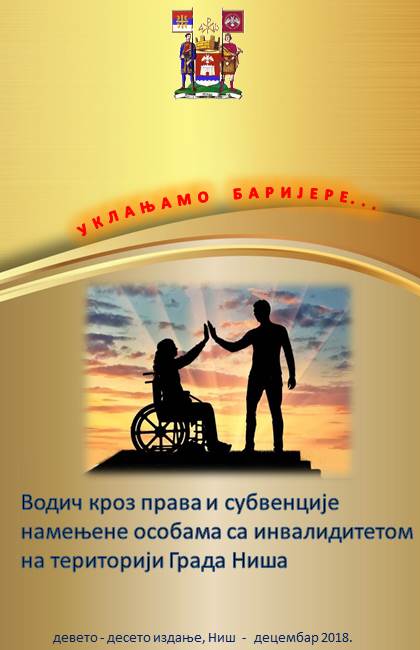2021
- The embassies of Denmark, Finland, Norway and Sweden in Serbia, under the auspices of the Nordic Council of Ministers, organized a series of events on the topic of the circular economy, in Novi Sad, Kragujevac, Niš and Belgrade. The aim of the conferences was to raise awareness of key local partners about the importance of the circular economy, strengthen the determination to continue implementing the principles of circular economy in Serbia, and transferring Nordic experiences and knowledge in this important area. As pioneers of sustainable development and the circular economy, the Nordic countries fully share the European Commission’s vision of a European Green Deal and a greener, non-toxic and more efficient production process. Niš conference was organized in partnership with the City of Niš Office for Local Economic Development, Niš Science and Technology Park, Nordic Business Alliance, National Alliance for Local Economic Development, Serbian Chamber of Commerce. The conference presented positive experiences positive impacts of the circular economy on environmental protection, innovation, economic growth and general well-being of people. The circular economy is a system in which everyone participates, from the state, large producers, all the way to small businessmen and citizens. At a conference held at the Science and Technology Park in Niš, Karin MacDonald, Director of Development Cooperation of Sweden at the Embassy in Serbia, pointed out that the aim of these conferences was to exchange experiences and discuss the importance of connecting and integrating different investments in the development of a city and about the importance of the participation of citizens, companies and educational institutions when investing in green investments such as wastewater and waste management. The director of the Swedish company Flamma Systems Sweden, which operates in Niš, presented business ideas through which waste is turned into a resource for the economy and urban development. The current situation in cities in Serbia regarding wastewater, green waste and sludge was discussed as well as challenges and opportunities through the presentation of the Swedish EISP – Environmental Infrastructure Support Project. The City of Niš, in cooperation with the Ministry of Environmental Protection, the EU and Sweden, is preparing for the construction of a wastewater treatment plant. The plant will prevent the discharge of 30 million tons of wastewater into Nišava River every year, and through the treatment of sludge, the biogas produced in the plant will be able to be used for the production of electricity and heat. In the coming years, increasing attention will be focused on biogas, bio-waste and green waste in Serbia by working on finding solutions at the local level that contribute to the circular economy and reduce the disposal of green waste in landfills. This was discussed in the panel Smart City and Circular Economy: how to turn green waste and waste sludge into energy and resources for the benefit of citizens and the local economy and Nordic countries – with Nordic companies and municipalities – have many years of experience in innovative solutions and investments at the local level.
- The 25-minute documentary is about the cooperation between Sweden and Serbia in the field of environmental protection. It also presents current environmental situation in Serbia, the connection between the Nišava River and Niš citizens, the cooperation between the Government of Serbia, Sweden, EU and local self-government in Niš in the field of wastewater treatment, how energy can be generated from waste, what citizens and students say when asked about the ecological future of the city. The City of Niš will be one of the first cites in Serbia which will implement the wastewater treatment project. Wastewater management is one of the areas that require most funds for adaptation of administrative and institutional infrastructures in preparation for European Union integration. The estimated value of the future wastewater treatment plant in Nis amounts to around 60 million euros. The construction of this plant is one of the largest and most important green investments in Serbia. The project in Niš includes close cooperation between the Government of Serbia, Sweden, EU and City of Niš. Preparation of technical documentation is funded by the Government of Sweden through the Swedish Agency for International Development and Cooperation Sida, within of the Priority Environmental Infrastructure for Development Project (PEID). The documentation includes the following segments – wastewater treatment plant (WWTP) Niš, additional sludge treatment, main collectors to WWTP Niš, reconstruction of the collector in Niš, extension of the collector network and facility for the treatment of drinking water Mediana – water treatment from washing the filters. The Feasibility Study for the Wastewater Collection and Treatment Plant Project was done for the City of Nis under Environmental Infrastructure Support Programme (EISP) financed by the Swedish International Development Cooperation Agency (Sida) and implemented by the International Management Group (IMG). Funds for construction works should be provided mostly by the European Union IPA, and the balance provided by the City of Nis and the Republic of Serbia through the Ministry of Environmental Protection.
https://bit.ly/2UklzkR
- Photo exhibition Nišava – Sustainable River Future was opened in the park on the Nišava riverfront. Twenty exhibition panels tell the story about the life of the city, its residents and the Nišava River in the course of history and today. A special section of the exhibition was dedicated to the future and the significance the wastewater treatment plant with the sewage system in Niš would have. Serbia, EU and Sweden will implement this investment together. The exhibition is a part of the EU Green Week marked this year from 29 May to 4 June throughout Europe with the same goal – to achieve “zero pollution” and preserve the environment. Most of untreated communal and industrial wastewater is directly discharged into the Nišava River and natural watercourses, which is one of the key factors of the environmental pollution. This exhibition draws the attention to the importance of wastewater treatment as a significant chance of recovery of the most important natural resource we have. The exhibition thus emphasizes the mutual impact of human activities and the Nišava River, reflected not only in the quality of public health, food and the living of residents of the City of Niš, but the entire Black Sea basin that the Nišava River flows into. The new wastewater treatment plant will reduce pollution, promote the quality of surface water and groundwater, improve the status of rural and urban sewage networks, all of which will have a positive impact on human health, flora and fauna, as well as the development of recreational and professional sports on the rivers. Sweden is supporting the Serbian Government and the City of Niš with EUR 1.3 million for the preparation of documents for the plant within the Priority Environmental Infrastructure for Development Project – PEID. The estimated value of the future wastewater treatment plant in Nis amounts to around 60 million euros The construction of this plant is one of the largest and most important green investments in Serbia. Funds for construction works should be provided mostly by the European Union IPA, and the balance provided by the City of Nis and the Republic of Serbia through the Ministry of EnvironmentalProtection. https://www.facebook.com/embassy.of.sweden/videos/538883603964379
2019
- The Governing Board of the Swedish International Development Cooperation Agency (Sida) led by Ms. Yvonne Gustafsson, the Chair of Board, and the Ambassador of Sweden Mr. Jan Lundin visited Nis and met with the Nis City Mayor Darko Bulatovic and the representatives of the City of Nis Office for Local Economic Development and Projects to discuss sustainable urban development. Nis is the first city in Serbia that the Sida Board visited, as Sweden is supporting the preparations of building a wastewater treatment plant in the Nis. The Swedish support to Serbia, including the development cooperation, is based on Serbia´s commitment to the EU integration process. The Swedish Government is evaluating the results of the current cooperation strategy and assessing further support to Serbia after 2020. Today the development program is 11 million euro per year and covers the areas of democracy and rule of law, economic integration and environment and climate. The project in Nis includes close cooperation between the Ministry of Environment, local authorities and representatives in the City of Nis within the Swedish PEID project (Priority Environmental Infrastructure for Development). The PEID project will support the preparation of the conceptual design and the tender documents for the waste water treatment plant and collectors. Under the IPA2018 programme, the EU has planned to fund the construction of the Nis waste water treatment plant for approximately 43 million euro.
- City of Nis joined the Project Open Data – Appear on the Map implemented by Association PALGO smart which is supported within the Platform Open Data – Open Opportunities implemented by the Office for IT and E-Government and UNDP Serbia, with the support of the World Bank, the Good Governance Fund of Great Britain (GGF) and the Swedish International Development Cooperation Agency (SIDA). The project provides support to institutions in the process of opening up their data, but it also supports IT companies, civil society organizations and others who are interested in using this data creatively. Opening of the data owned by public institutions for their reuse is a strategic commitment of the Government of the Republic of Serbia and it is reflected in the Strategy for e-governance development in the Republic of Serbia for the period from 2015 to 2018 and in the Action plan for the implementation of the international initiative Open Government Partnership (OGP) in the Republic of Serbia for 2016 and 2017. The project follows the recommendations set out in the Open Data Readiness Assessment conducted by UNDP and World Bank. On a wider scale, the project will contribute to efficient implementation of the Public Administration Reform Strategy and bring Serbia closer to the best European and global practices in the field of good governance. The purpose of the cooperation of the City of Nis in the Project is to raise awareness of the need for quality collection, input and reuse of data, to introduce the concept and mechanisms of the process of opening data in the City of Nis administration, to improve the capacity of the City of Nis through mentoring, as well as to open datasets on the web site of the City of Niš and on the National Open Data Portal.
2017
- The hundredth anniversary of diplomatic relations between Serbia and Sweden was celebrated with a concert of Serbian and Swedish music at the City Hall in Nis. The Embassy of Sweden has devoted a series of events related to this anniversary to Nis. Besides that, on the last day of October, the first plane to Stockholm from the airport “Constantine the Great” took off. A century ago, the Government of the Kingdom of Serbia, which was then positioned on the island of Corfu, signed a document posting Bogoljub Jevtić a Second Secretary/clerk to a Mission to Stockholm. After a month, he was replaced by the Serbian poet and diplomat, Milan Rakic, who officially opened the first Serbian diplomatic mission. This is the beginning of diplomatic cooperation between two countries, which has not been interrupted since then. On the occasion of this anniversary photographs from the State Archives of Sweden were shown at the City Hall of Nis. They have been displayed to a broad audience thanks to the historian Dušan Topalović, who lives in Sweden. This manifestation also encompassed a photo exhibition called “Swedish Dads” arranged in cooperation with the organisation “Gnezdo-Beograd and Young Ambassadors. The photos show some precious moments of fathers with their children aiming at pointing out the importance that dads also use the parental right to be absent from work in order to be with their children.
- The Memorandum of Understanding between the Ministry of Agriculture and Environment Protection, and the City of Nis was signed for the preparation of technical documentation related to the project of building a system for collecting and treating waste water in Nis. This project is one of the biggest infrastructural projects within environment protection, and Sweden is funding the development of the technical documentation. The project of collection and treatment of wastewater for the City of Nis includes construction of a new collector, restoration of existing, afterwards, the city plant for waste water treatment, as well as additional treatment of sludge. Complete project and technical documentation for the plant and sewage will be funded from the new support programs of the Swedish International Development Agency to the environmental sector in Serbia, PEID, “Preparation and development investments in the environment ”, which starts on 25 July 2016 and is worth almost 3 million EUR.
2016
- The Priority Environmental Infrastructure for Development Project (PEID) – started in September 2016 with the set implementation period of three years. The project aims to contribute to preparation of priority projects to be ready for financing and implementation within the environmental sector. PEID project will provide technical support to Division for Project Management in the Environmental Area (DPM) of Ministry of Environmental Protection of the Republic of Serbia (MEP) for project management as part of a process of capability and capacity development. The support will enable DPM to develop priority projects that will make a strategic contribution or preparation of smaller projects to unlock available funding while the major projects are being finalized. The purpose of PEID project is to achieve improved infrastructure project preparation, preparation of technical documentation for implementation of selected priority projects, increased capacity of MEP DPM in preparation of environmental infrastructure projects. The importance of the project reflects also in the improvement of understanding of different target groups on the need for improving existing or construction of a new WWTP and waste management facilities in Serbia, not only to meet EU and Serbian standards, but also to secure healthier environment and living standards for all citizens of Serbia as well as benefits for stronger economic development. PEID is funded by the Swedish Government within the SIDA framework for foreign assistance. It is managed by the Embassy of Sweden in Serbia and with the Ministry of Environmental Protection of the Republic of Serbia (MEP). The City of Nis signed a Memorandum of Understanding with the Ministry of Environmental Protection, which marked the beginning of the preparation of technical documentation for the implementation of the “Wastewater Collection and Treatment Project in Nis”.
- Environmental Infrastructure Support Programme (EISP) – The overall objective of EISP is to provide the Department of Project Management (DPM) of the Ministry of Agriculture and Environmental Protection (MAEP) with the capability and tools to oversee the programming and implementation of at least € 40 million of environmental infrastructure projects each year of accreditation and be ready for EU structural funds on accession. The Programme (EISP) is financed by the Swedish International Development Cooperation Agency (Sida) and implemented by the International Management Group (IMG).The Feasibility Study for the Wastewater Collection and Treatment Plant Project was done for the City of Nis under this programme.
2015
- Swedish ICT and Gaming Day in Nis – The visitors had the opportunity to learn how the “neural interface” functioned, why some states had “the boss of the Internet”, what could be seen through “oculus rift” and how the helmet changes color depending on the mood of the wearer. The conference was organized by the Embassy of Sweden and NGO (Young Ambassadors). Lecturers from Serbia and Sweden discussed latest trends in the field. Representatives of the Embassy of Sweden chose Niš to be the venue since they concluded based on their own country’s example, that the development of those cities which are not the biggest in the country is the substantial one. The representatives of Ericsson, Seavus, Trox and Vet Cloud talked about business in Serbia and in Niš. In addition to lectures, innovative workshops were held and visitors were able to familiarize themselves with virtual reality through revolutionary invention as the “oculus rift”.
2012 – 2014
- The city of Växjö from Sweden and the cities of Niš, Kula and Varvarin are partners in the project Development of Local Energy and Energy Efficiency within the program Support to Local Governments in Serbia in the process of European I The aim of the program is to strengthen local self-government capacities in Serbia so that they could meet the requirements of the EU accession process. The program covers the following components: Serbia’s accession to the EU and the impact of accession on the local level of government, environmental protection, gender equality at the local level, the regulatory framework of local self-government for a more favorable business environment, strengthening the capacities of the SCTM. As part of the environmental component, Swedish local governments, together with Serbian municipalities, are implementing short-term projects and exchanges of knowledge and techniques. Three separate partnerships have been established between three Swedish municipalities and three clusters consisting of 3 to 4 municipalities in Serbia. The focus of the partner projects is on strategic waste management, energy, noise and air pollution. The partners are expected to jointly develop cooperation modalities based on the experience of the Swedish municipalities in the thematic areas concerned, with the aim of more effective law enforcement and more successful local environmental issues. Following the evaluation of the submitted questionnaires, according to predefined criteria, the City of Niš and the municipalities of Varvarin and Kula were selected to be part of a cluster that will address local energy and energy efficiency issues. The partner local government from Sweden is the City of Växjö. With the proposal of the Plan of Activities under this theme, the members of the Serbian cluster have committed themselves, with the help of representatives from the City of Växjö, to prepare their local energy development planning documents – the Energy Roadmap. The Energy Roadmap will define long-term and short-term energy goals for local governments in Serbia, based on the experience and knowledge gained by the City of Växjö en route to the title of “greenest city in Europe”. The value of the project is € 115,000
2011
- The Swedish Agency for International Cooperation – Sida has financially supported the project “Removal of Non-Technical Barriers to the Use of Biomass for Energy Purposes – Biogenerator”, implemented by a consortium of civil society organizations, in cooperation with the services and administrations of the City of Nis. The project “Biogenerator” has been implemented since March 2010 within the “SECTOR” program implemented by the Regional Environmental Center. The value of this project is EUR 30,745. The aim of this project is to define legal, administrative, economic, financial and financial barriers in the context of lack of information. This objective will be achieved by using good practices from EU countries and developing models in line with the situation in the field in Serbia, building capacity of participants and educating the public, as well as disseminating information on the benefits of using biomass. The aim of the project is to provide a starting point for increased use of agricultural and forestry waste, as well as biodegradable municipal waste for energy purposes. The ultimate goal is to reduce the use of fuel oil, oil, gas and coal in boilers and thus dependence on energy.
2010
- The seminar entitled “Partnership for Sustainable Infrastructure Development” was held in Nis, organized by the Foreign Office of the Ministry of Foreign Affairs of Sweden and the City of Niš. The seminar was organized with the aim of expanding cooperation between Serbia and Sweden in the field of development of sustainable infrastructure projects.
- The Ministry of Foreign Affairs of the Government of the Kingdom of Sweden has provided funding for the preparation of the Energy Balance Study in the City of Niš.
2009
- The City of Nis has signed the Contract for the preparation of financially acceptable Feasibility Study for the Ecological and Technical Improvement of Constantine the Great Airport with the representatives of the Ministry of Foreign Affairs of the Government of the Kingdom of Sweden and the Agreement on Consulting Services with SEK Consulting Company.
- The City of Niš has signed the Contract on the Development of a Financially Eligible Feasibility Study for the Waste Water Treatment Plant Development Program with the representatives of the Ministry of Foreign Affairs of the Government of the Kingdom of Sweden and the Agreement on Consulting Services with the Consulting Company SEK.
- The City of Nis and the City of Vaxjo signed the Letter of Intent in March 2009. The initiative for cooperation came from the Ministry of Foreign Affairs of the Kingdom of Sweden, during the implementation of the Agreement on the Provision of Consultancy Services for the Preparation of Financially Eligible Feasibility Study for Ecological and Technical Improvement of Constantine the Great Airport in Niš and Financially Acceptable Feasibility Study for Wastewater Treatment for the City of Niš. The planned areas of cooperation are energy efficiency, environmental protection. Växjö is a city in the south of Sweden with a population of over 80,000.00. It is the administrative, cultural and industrial center of Kronoberg County and an important crossroads of regional roads. Växjö is a university center with 14,000.00 students. The City of Växjö is internationally recognized for its fight against pollution and climate change and has been named the greenest city in Europe.
2003
- The $ 2 million dairy sector development project in Nis region entitled Milk River was funded by the Government of the Kingdom of Sweden.


